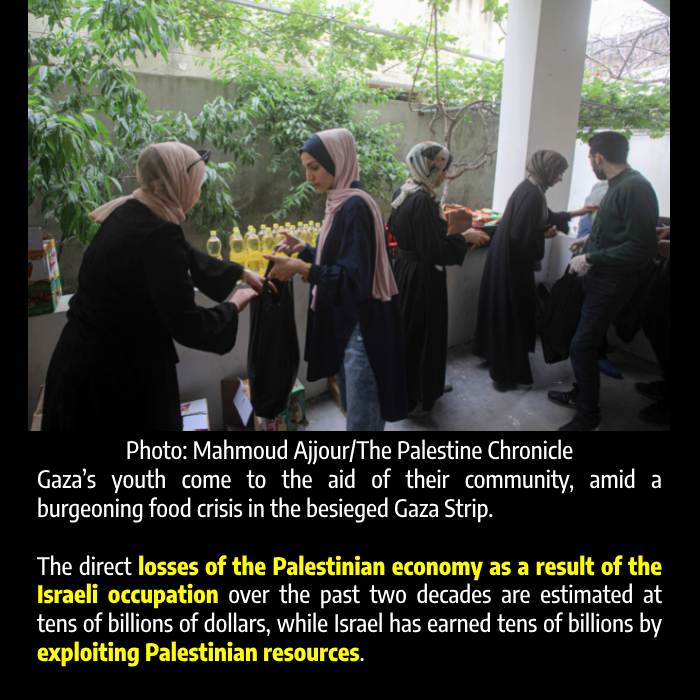
“The United Nations and the World Bank estimate the losses of the Palestinian economy at about $50 billion since 2000, due to Israeli measures.”
The direct losses of the Palestinian economy as a result of the Israeli occupation over the past two decades are estimated at tens of billions of dollars, while Israel has earned tens of billions by exploiting Palestinian resources.
As for the direct causes of the losses, they are the closures imposed by the Israeli occupation on the Palestinian areas and its control over the crossings on the one hand, and the exploitation of Area C resources from the West Bank on the other.
This information, and more, was revealed by the Palestinian Minister of Economy Khaled Al-Osaily in an interview with Aljazeera Net’s Awad al-Rojoub.
These are selected excerpts from the interview ..
Estimated Losses, and Thefts
“The United Nations and the World Bank estimate the losses of the Palestinian economy at about $50 billion since 2000, due to Israeli measures, especially the closures imposed on Palestinian areas.
“In addition to the losses resulting from the closures, Palestine loses about $3.4 billion annually because the (Israeli military) occupation does not allow for the use of Area C resources of the West Bank.
“The exploitation of natural resources in Area C provides Israel with an estimated annual income of about $41 billion, which constitutes 12.9% of the Israeli national income.”
The Oslo Connection
According to the 1993 Oslo Accords between the PLO and Israel, the West Bank was divided into three areas: (a) under Palestinian security and civil control, (b) under Palestinian civil and Israeli security control, and (c) under full Israeli control and constituting about 61% of the West Bank.
“The loss in Area C is that the PA is not allowed to exploit and invest in it. The Israeli occupation is establishing settlements, factories, and farms, thus illegally exploiting Palestinian land, water, and resources, including crushers and stone mining.”
Amend ‘Paris’
“The Paris agreement was (meant to be) temporary, (lasting for only) five years, as is the Oslo agreement, which was supposed to end in 1999, but unfortunately the transitional period ended (yet), the Paris agreement did not” and was not amended.
“In the Paris Agreement, there was a joint economic committee, which is the only mechanism to regulate the economic relationship between the PA and its ministries on the one hand and Israel on the other, and its last official meeting was in 2000, after that a meeting was held in 2009 and discussed only two topics in a session that lasted about two hours.
“The Palestinian demand today is to amend the agreement, especially since Palestine has become a state since 2012, and we have the right to freely import from anywhere, without specifying an item or quantity, but Israel controls the crossings, and any import operation must be registered on the Israeli computer.
“The Paris Agreement includes lists, varieties, and quantities that have not changed since the establishment of the authority in 1994, and some of them no longer exist, such as non-colored television sets (black and white), in addition to increasing consumption, especially in foodstuffs, by three times what it was, without changing the quantities mentioned in the agreement.
“Israel prevents the entry of more than 100 items of raw materials used in leather, construction, food, engineering, metallurgical, textile, sewing, health and other industries under security, environmental and health pretexts.
“Israeli obstructions and the failure to amend the Paris Agreement aim to disrupt Palestinian development, investment and industry.”
Source: The Palestine Chronicle. 5 July 2023